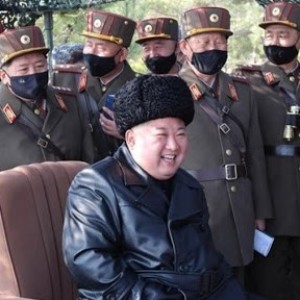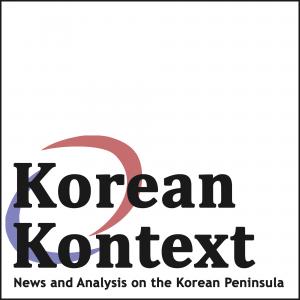
North Korea is putting on a tough face as the world confronts the COVID-19 pandemic. Authorities in Pyongyang continue to reassure the rest of the world that nothing is wrong and that the country remains completely immune from the pandemic. And yet previous international crises - like the global rice panic of 2008 - had an outsized impact on North Korea because the country stands so precariously on the edge of economic collapse. Similarly, the country’s decision to close its borders to both goods and people in response to the pandemic is expected to have severe consequences on the livelihood of many people.
Simultaneously, the country has also been maintaining diplomatic isolation - waving away overtures from South Korea and demolishing the inter-Korean liaison office that had symbolized the great advances made since the summits between Moon Jae-in and Kim Jong-un in 2018.
But now, Pyongyang faces a tough decision - will it maintain this isolation even as South Korean voters extend overwhelming support to its pro-engagement administration, and as the United States prepares for an election where Donald Trump - the U.S. president who has extended legitimacy to the North Korean leadership - faces a very tough competition?
To discuss Pyongyang’s strategic choices at this critical juncture, we have with us today, Markus Garlauskas - a former U.S. National Intelligence Officer for North Korea. KEI Senior Director Troy Stangarone caught up with him for a quick discussion.
Staying on the subject of North Korea, KEI will host Dr. Hazel Smith on July 28, 2020 at 2 p.m. EDT for a discussion on the ethics of international sanctions on North Korea - she asks whether the illegality of North Korea’s nuclear arsenal justifies the current pressures placed on the country by the international community.
You can RSVP for the event here:
https://share.hsforms.com/1T4Y00yBaQkOu6OLU0NNXEA2ztzy
More Episodes
 2024-08-01
2024-08-01
 404
404
 2024-03-07
2024-03-07
 612
612
 2024-02-15
2024-02-15
 307
307
 2024-02-08
2024-02-08
 219
219
 2024-02-01
2024-02-01
 239
239
 2024-01-18
2024-01-18
 336
336
 2023-12-28
2023-12-28
 289
289
 2023-12-07
2023-12-07
 407
407
 2023-10-26
2023-10-26
 401
401
 2023-08-31
2023-08-31
 607
607
Create your
podcast in
minutes
- Full-featured podcast site
- Unlimited storage and bandwidth
- Comprehensive podcast stats
- Distribute to Apple Podcasts, Spotify, and more
- Make money with your podcast
It is Free
- Privacy Policy
- Cookie Policy
- Terms of Use
- Consent Preferences
- Copyright © 2015-2024 Podbean.com






